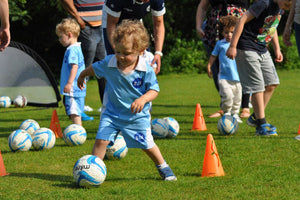How to help my 5 year old to read? Useful strategies to get your child reading quickly
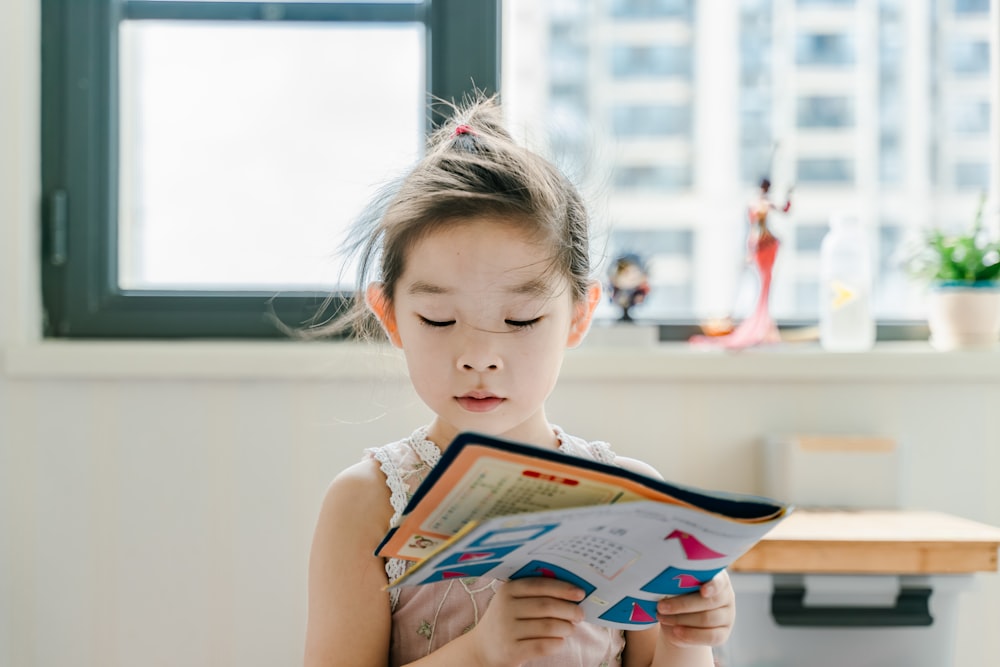
Introduction
Chances are if you're reading this, you want to help your child learn to read. And that's great! Learning to read unlocks a world of opportunities for children. Research has shown that reading early on in life is linked with better academic achievement throughout school. So how do you go about how to teach my 5 year old to read? How do we persuade them that reading is the ultimate kind of entertainment? Unfortunately, not every child desires or enjoys books to the same degree as others. The following suggestions can persuade reluctant readers. For starters, you need to capture the interest of an active reader. While the process may vary depending on your child's unique needs and abilities, some general tips can help any parent get started. Keep reading for information on how to help your toddler to read!
How to help my 5 year old to read
Getting your child interested in books is one of the most important things a parent can accommodate to help their child learn to read. As a parent, you can assist your child in acquiring new abilities and having fun simultaneously. Have enthusiastic conversations about the books you're about to read to them! A day trip to the museum could help.
Steps: How to teach your toddler to read?
Reading is a crucial life skill for children to acquire. Research demonstrates that it is one of the best ways for youngsters to:
- build their vocabulary,
- grasp complex ideas like science or math,
- engage socially!
Using the tips in this article, you may quickly turn your child into a voracious reader.
To start, here are a few pointers:
Please encourage your child to engage in imaginative play during their early development. As a parent, the goal is to give your child the best possible start in life, from day care throughout high school. It's possible that teaching your toddler to read will put them ahead of their peers:
- socially,
- emotionally,
- academically and when they begin school later on.

How to teach my kid to read
If you want to teach your child to read, you need to be both a good teacher and a patient one. Don't be afraid to facilitate your relationship with your child so that they feel comfortable asking questions and searching for answers when necessary! Begin by demonstrating the behaviour yourself while reading with your children at home.
What is reading for you?
Demonstrating reading will give them an example of what "reading" means and help them develop habits early on that lead to fluent readers later in their development path. As a first tip, remember that children need repetition to keep their attention, so include games on every page of text they read.
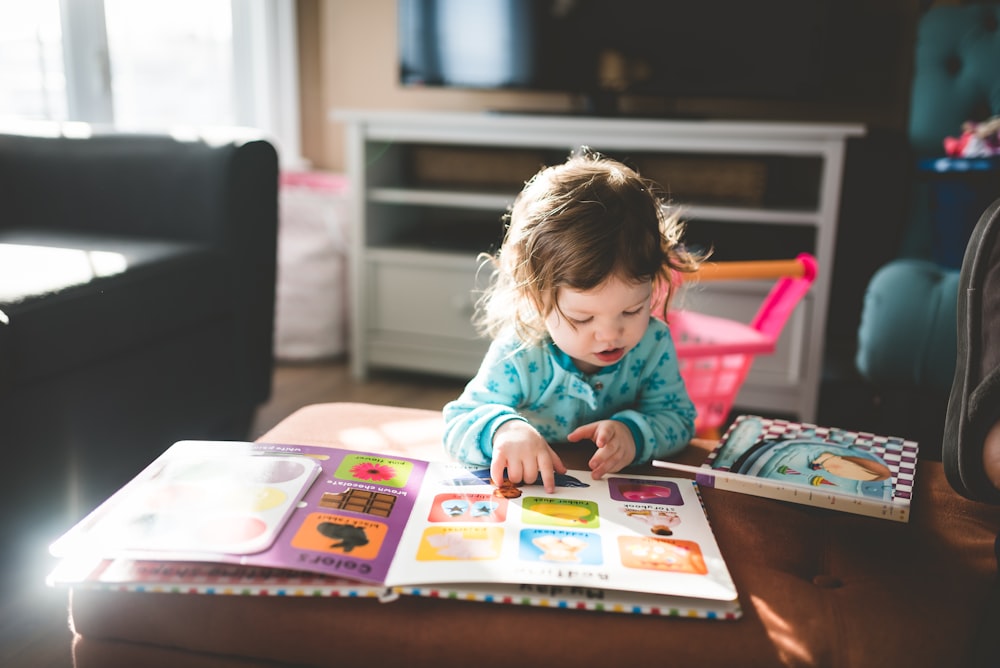
Why read aloud text?
The sound waves change your child's brains into thinking differently about letters when they are read aloud. Children can remember words better when reading aloud rather than reading silently. Speaking too quickly while reading to your child slows down their comprehension. Reading is one of the most critical skills a child can acquire.
Early Reading Skills
Your child's early reading skills can help them gain an advantage in life because it:
- increases vocabulary,
- fosters independence
- enables your ability to share information more easily.
- improves their comprehension ability
- strengthen their knowledge acquisition and application processes.
The procedure of teaching your child to read can be exciting and fun.
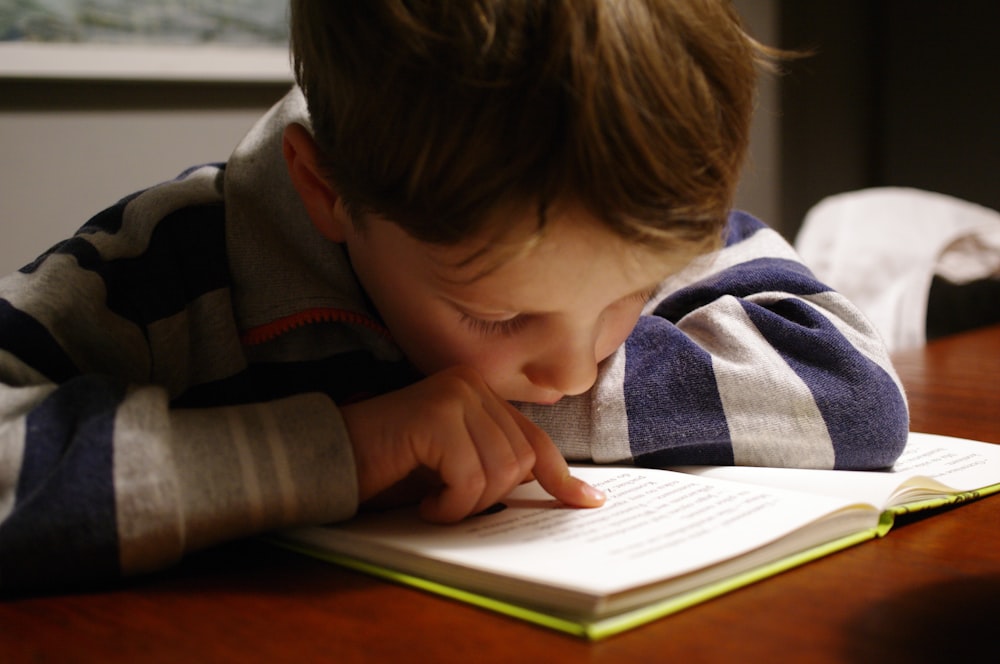
To help you, I've compiled the following list of suggestions:
First, teach them all about sounds of,
- letters (uppercase and lowercase),
- words that begin with different letter combinations,
- Move on to concepts such as phonics and word structure.
To help children develop both their creative and literacy skills, encourage your child to do things like:
- paint
- draw
- play outside together.
Be patient! Keep at it until you see progress.
Types of reading habits
Make sure you don't just teach your child the alphabet when it comes to reading. Good reading habits begin with basic skills such as letter names and sounds. Then progress to more complex concepts such as syllable, roots or word groups. Last but not least, an attempt to comprehend new phrases in context!
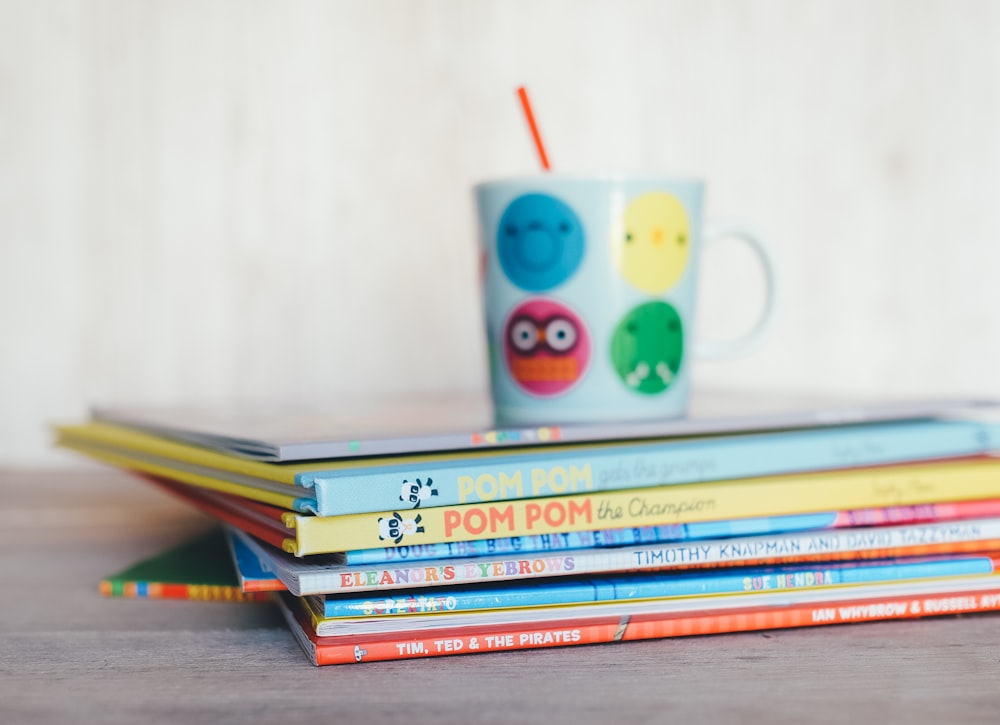
Picture books and flashcards
When it comes to training your child to read, using books with fewer words is an effective strategy. Allow them to begin by looking at simple drawings or reading a children's board book to reduce disorientation while reading! Using picture books and flashcard is an excellent method to help your baby read. Check out how to teach your baby to read kit [3]. c
Buy Here
You can teach your baby to read with this kit.
Help your child master essential school skills with this reading kit.
These flashcards have many benefits. These include
- reinforcing common word recognition to
- Building associations between words and their image
- forms a solid foundation for reading readiness.
- develop memorisation tactics to support success across subjects
- play creative games
- provides mental stimulation

Why is reading early important?
Giving your child the ability to read early will help them access and pass knowledge tests early on. This skill will also give your child an advantage over other children their age who have not yet mastered these critical abilities. Early reading will provide them with the benefit of skipping grades or being placed in a gifted and talented group.
Importance of literacy skills
Reading is a fantastic opportunity for youngsters to improve their literacy abilities while learning about diverse worlds and cultures. Besides fostering relationships, reading with children allows them to discover new ideas in books they might not otherwise encounter or read independently. They practice attentive listening skills that will be useful when speaking with a person directly.

Here are a few things to keep in mind
- Get children involved early on.
- Promote imaginative play
- engage them in activities that promote cognitive and social development
- makeup stories about what's happening in the world
There are numerous fun activities associated with reading, such as crafts, dramatisation and games. Remember that reading aloud helps us increase our vocabulary knowledge.
Are nursery rhymes important?
Nursery rhymes capture the attention of children. They have a certain magical quality that makes them captivating, which may be why some people love singing or reciting them. Rhyming helps little ones learn how sounds work together with words. Research has shown music education leads directly into
- better grades throughout school,
- intelligence tests
- art classes where creativity matters most.

Buy Here
How to teach my child to read the clock?
One of the best ways to teach your child how to read a clock is by having them explore the features of a clock. Teach your child to count in 5's and apply this to the clock face. Get them to practice reading times such as 5 pass an hour or 45 minutes past an hour, to begin with.
This Learning Clock is the perfect way to get your child interested in learning how to read a clock. With fun, interactive features, they'll be entertained while they learn. Teach them how to tell time with this fun and educational toy!
Buy Here
Introduce time to your child
Music is frequently the child's first exposure to the concept of time. For example, you could sing a lullaby to your child as they sleep or teach them about the songs on their favourite clock radio station! The next best option is to have fun while doing so - for example, playing sounds of animals going about their daily routine.
Teach your child to read games
You can use games to encourage your child to read. Using games to keep kids engaged and motivated is a great way to help them learn new skills as they get older. Getting them started with reading games at a young age can set them up for future success as readers.

Reading Games
You can find everything from interactive fitness workouts to brain-training exercises on offer these days regarding educational content. Sometimes all this technology makes us feel lazy or hungry.
"Reading Games" allows players to explore worlds by finding hidden items, such as books, crayons, and other things. Reading games can be fun. One popular game is by Plugo Letters. It is the perfect way to keep your kids entertained and learning! This AR-powered word building kit combines the goodness of hands-on learning and healthy screen-time. Spell with alphabet tiles, grow your vocabulary, and improve grammar with story-based spelling games.
Buy It Here
Playing Games to read.
What level of reading skills do you want your child to have? Every parent wants their child to read to the best of their ability. Playing games is interactive, simple enough for a child to understand, but challenging enough that not only the most intelligent people would enjoy it! Kids of all ages and abilities learn a lot from games.
Strategic thinking games.
Chess and boccia are good strategic thinking games. Players don't need much patience or eye-hand coordination skills when playing boccia because reading is involved. They have to think strategically about how best to move pieces around the board based on what colour matches other pieces already on the board.
Buy It Here
How to teach your child to read phonetically
First, introduce the sounds of letters and words to your child. As toddlers or pre-schoolers learn their ABCs, it can help them recognize patterns in written text. This strategy is preferable to figure out which letter goes where on an unknown word! Your child's reading ability can be improved by teaching them to read phonetically. ThinkFun's Zingo Bingo is the perfect game for pre-readers and early readers. With its fun, fast-paced play, it builds language and matching skills in preschool kids. Plus, it's as popular in the classroom with teachers as it is in the home with families!
Buy It Here
Learn English pronunciation
As a parent, you can best help your child learn the sounds of letters by reading aloud to them. This can be done by reading each word aloud and then allowing the child to repeat it. You, the parent, can correct the pronunciation of words and clarify if necessary! This could be a fun game by using different voices.
What's the phonics method?
The "phonics" method is one of the most effective ways to teach reading to children. Phonics teaches them to pronounce each letter rather than write it down. Five sound units make up the phrase "the cat". To avoid confusion, it's important to remember that t is for "top"; C is for "insect" or "food truck".
More phonetic sounds
Kh is for "hissing noise" before "e" at the beginning of "o fiendishly clever animal" and so on. Let's look at another word for a moment. For your child to understand what makes certain word combinations unique, we must begin by teaching them the shapes and sounds of the words themselves.
How to teach child to read early
You can commence teaching your child to read from the day they are born. In most cases, it's incorrect to believe you must wait a certain amount of time to learn or teach reading. That doesn't mean it isn't essential; instead, make sure both skills develop together! Here is a programme we recommend to help your child read early [2].
A child's success hinges on early literacy.
Children are more likely to succeed in life if they learn to read early!
The first step is to look at baby-friendly pictures with their text. Make words out of letters, read each letter slowly from left to right, and then say each word. Try saying words like "tree" and "house", which are everyday objects.
How to teach your child to read better
Teaching your child to read better is not an easy task. The first thing is to choose a font. The font's effectiveness at enhancing speed and accuracy makes the rest of the process much easier. This decision must be made early because reading difficulties like dyslexia can cause frustrating problems if you don't use the suitable typeface for reading practice.

Learning a second Language early
The earlier you learn how to read, the more opportunities for success in life will be available to your child. Learning another language is not only good practice with reading but can also open up new worlds that might otherwise remain closed off from your perception because of lack of fluency with spoken languages like English.
Why should you learn a second language?
Is it true? Absolutely! Research has shown time and again just what an impact early learning experiences have on kids' later years - both academically ( improved grades). Additionally, based on society, they can enjoy fully pursuing their passions without frustration caused by communication barriers. Click here for why you should learn a language.
Conclusion
If you are looking for a way to teach your child or toddler how to read, many options are available. There are books on the market that have been designed specifically with toddlers in mind and can help them learn more about letters, their sounds, letter combinations. Please provide them with books they enjoy reading aloud from the same book on designated days each week. So one person knows exactly where their favourite passage begins to keep up the momentum during this process. It should continue until young readers are well-read persons who delight in words and absorbing knowledge! I have used this method to show me how to help my 5 year old to read. You and your child could develop a love of reading together.
Here is some research on what you as a parent need to know about how kids learn to read [6]. This will reveal some interesting facts about how to teach your child to read better.
References
1) Why you should learn a language?
2) Help your child read early programme
3) How to teach your baby to read kit
4) Best reading classes for toddlers and young children
5) 3-year-old learns to read in 5 minutes! (SO EASY!) | How to Teach Blending (Phonics) - YouTube
6) What you need to know as a parent about how a kid learns to read.
7) Learning to Read Using Phonics | Teach Your Child to Read - YouTube









